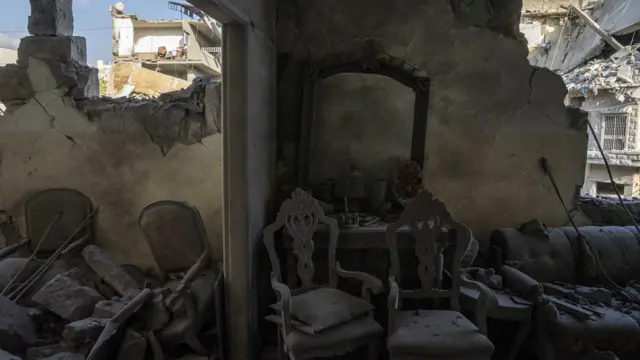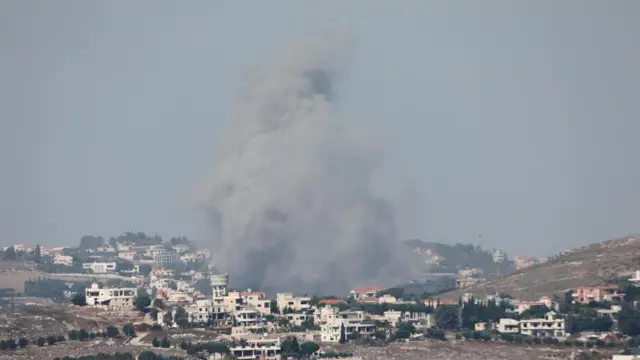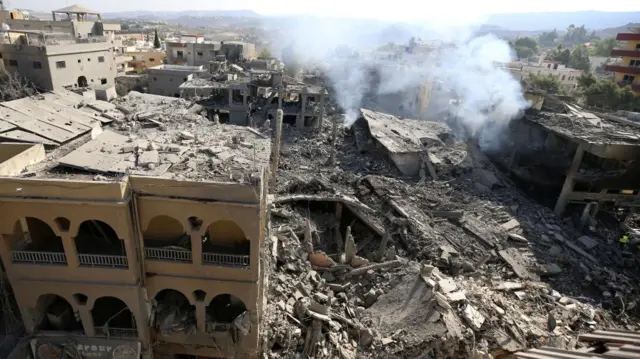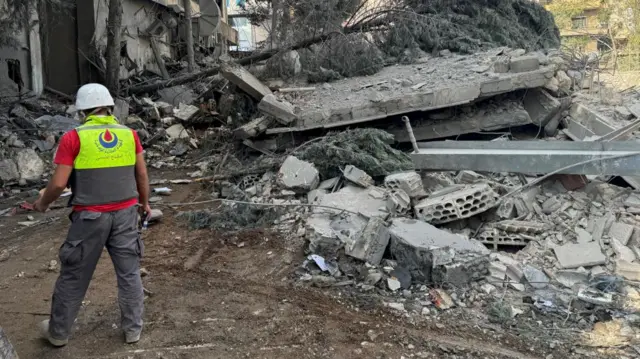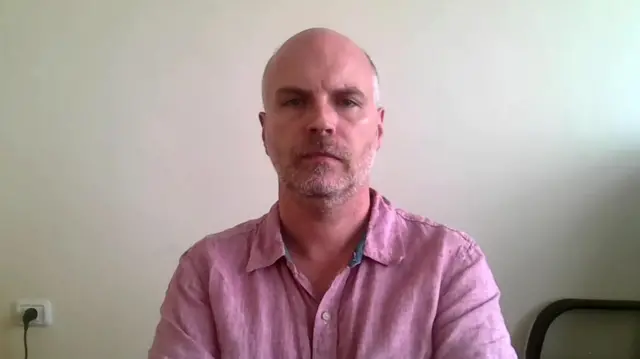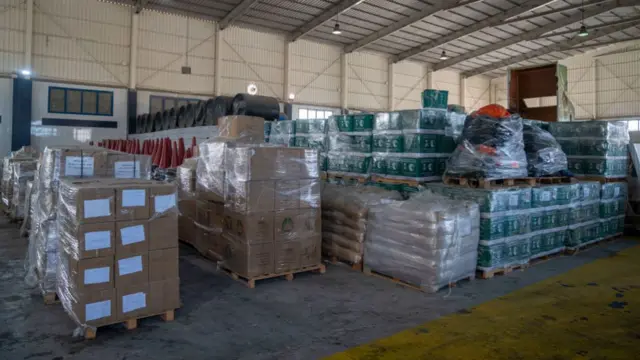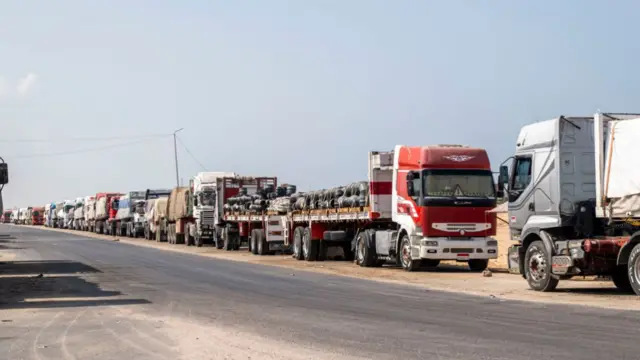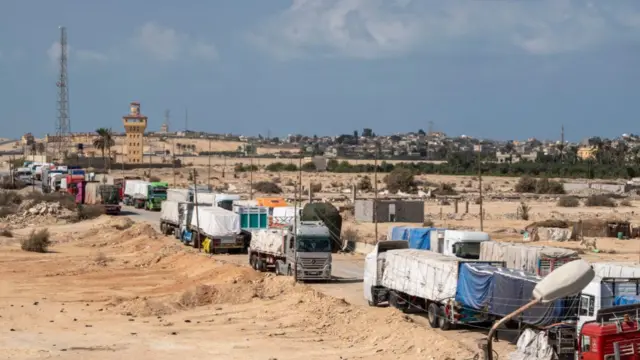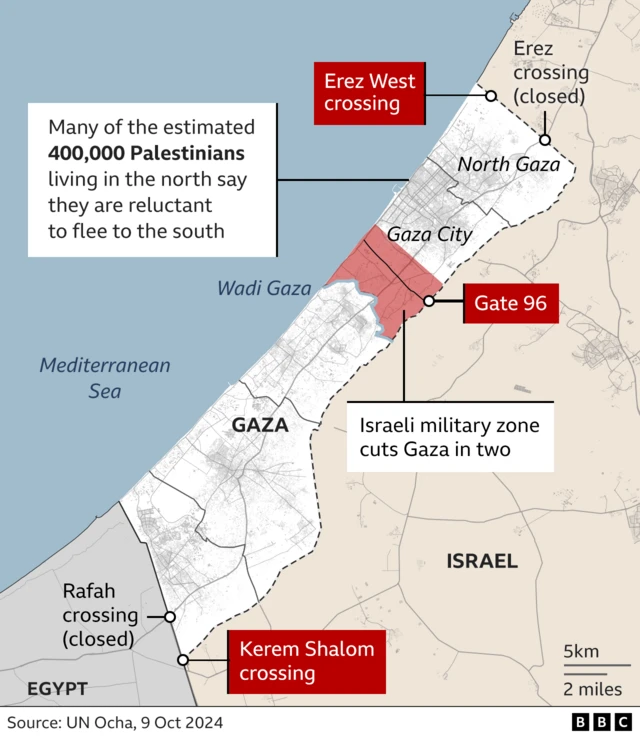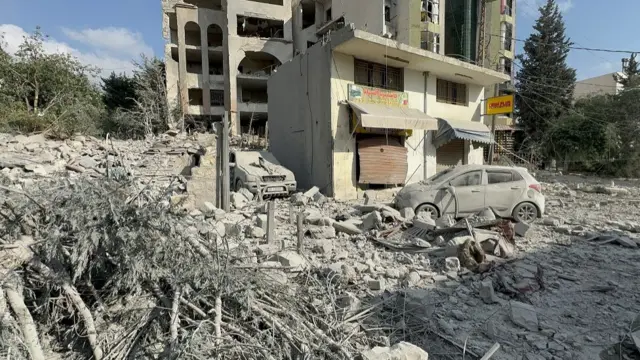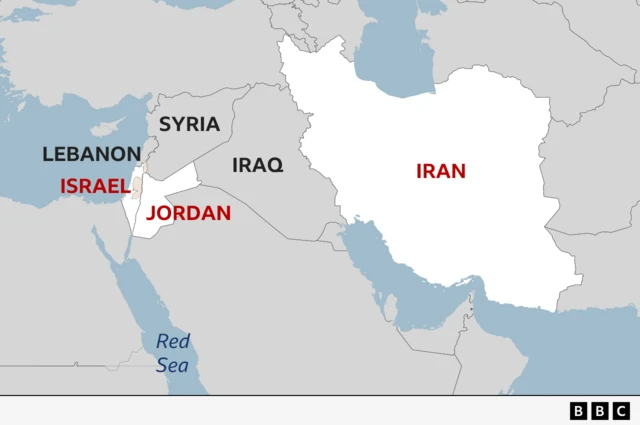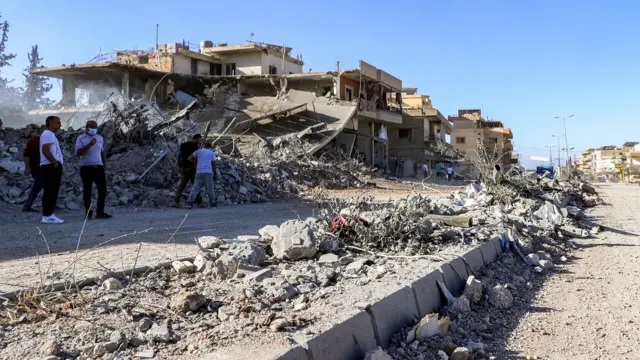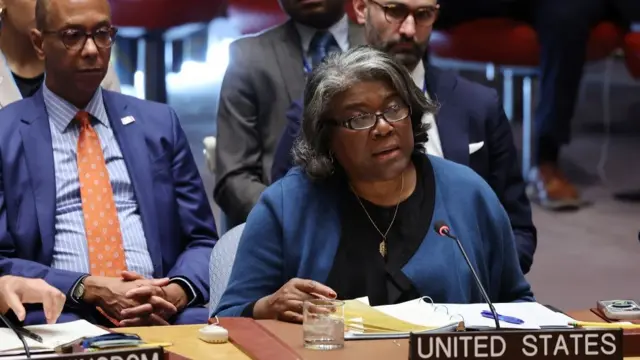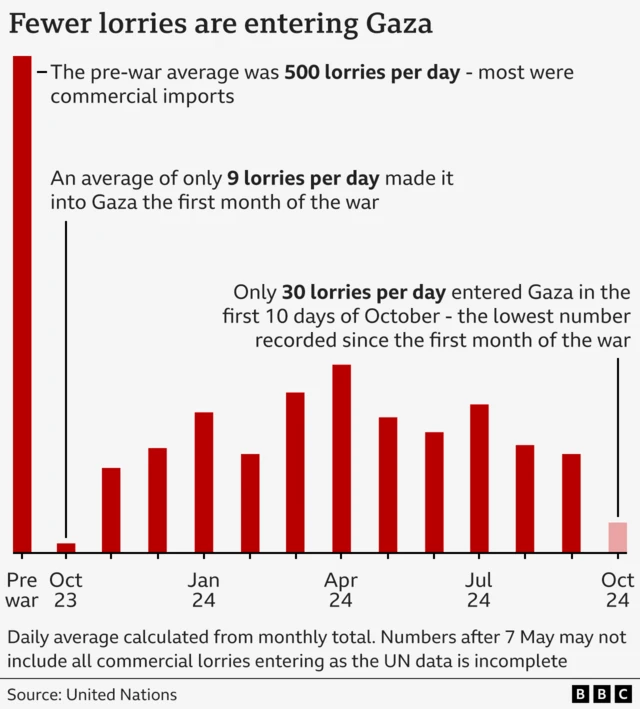Here's what happened todaypublished at 21:16 BST 16 October 2024
Israeli tank fired at peacekeeper watchtower – Unifil
The UN Interim Force in Lebanon (Unifil) said an Israeli tank fired at their watchtower, describing it as "apparently deliberate fire" at its position – Israel is yet to comment.
It follows several reports of similar incidents over the past week – you can read our Middle East correspondent Wyre Davies' in-depth look at the row between the two here.
Cross-border fire continues
Lebanon says 16 people were killed in an Israeli strike on a municipal building in Nabatieh, a city in the south, with the mayor among those killed – Israel said it was targeting Hezbollah in the area.
Israel also carried out air strikes on Beirut early this morning for the first time in five days.
Meanwhile, the Israel Defense Forces said 90 projectiles were fired at Israel in the last 24 hours, and emergency services there said two people were treated after being injured. Lebanon's government reported 138 strikes in the past 24 hours, state media reports.
Mounting pressure over Gaza
After Washington demanded Israel allow more aid into Gaza or risk a reduction in military support, Reuters and Israel's Channel 13 News reported that Israeli PM Benjamin Netanyahu has convened an emergency meeting to address the situation.
Our international editor Jeremy Bowen writes that the US threat is a sign of its anger that Israel has not kept its promises.
We're closing this page now. You can read more about the latest offensive in Gaza and the toll the situation is taking on the people living there in this piece from our special correspondent Fergal Keane here.

